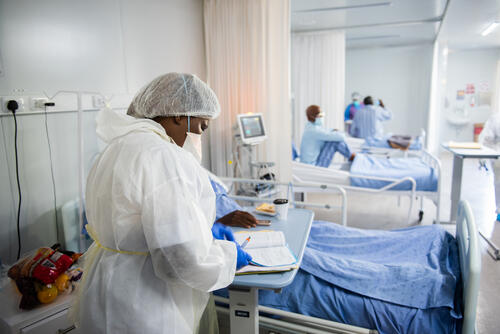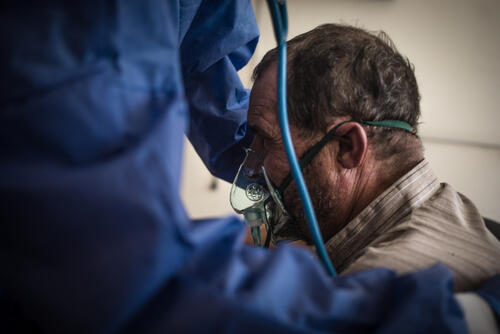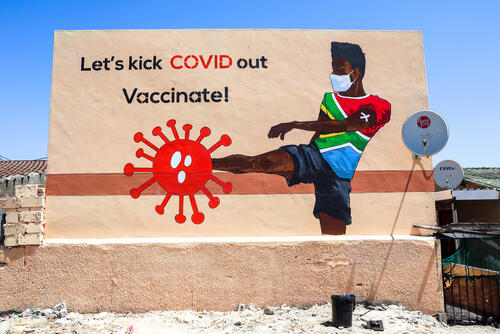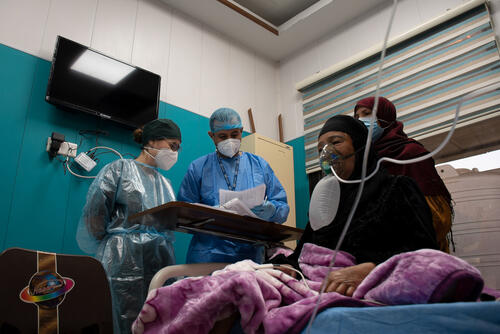This opinion piece was first published in English in Al Jazeera and in French by Le Monde.
Today we can say that we are entering into a new phase of the COVID-19 pandemic, with many of the countries that have been worst affected by the virus – such as the United Kingdom – having vaccinated enough of their vulnerable patients and health staff to avoid the worst of the pressure on their health systems, even though the virus continues to widely circulate. With over a billion vaccines made a month, there should theoretically be enough for everyone.
There is, however, a problem with the distribution of the vaccines - some people who need them urgently, such as healthcare workers or people at risk of developing a serious form of the diseases because of their age or because they suffer from other illnesses, do not have access to them.
Yet the solution proposed by the UN, which calls for getting “vaccines into the arms of 40 per cent of people in all countries by the end of this year — and 70 per cent by mid-2022,” is over-simplistic. A one-size-fits all solution that ignores local epidemiological and political conditions is misguided, and even threatens to divert efforts from where they are most needed.
What we need to see are locally adapted approaches that engage with the unique characteristics of each outbreak and the people that are threatened by it. They also need to take account of the full range of our tools now at our disposal – which does not just mean vaccines.
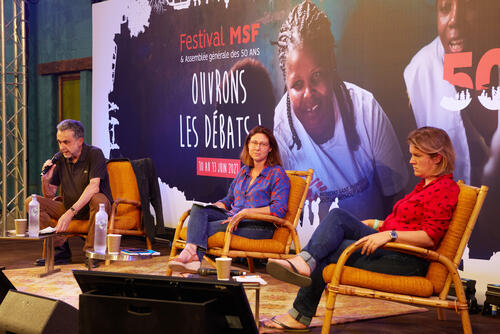
Médecins Sans Frontières (MSF) has responded to COVID-19, in one way or another, in nearly all the 88 countries where we worked in 2020 and continue to do so in 2021. In some of those countries where we worked on treatment and vaccination, we are now stopping our responses. This is either because, like in France, the vaccination coverage is now very high; or as is the case in Peru, because the authorities can manage the response, despite the continuing outbreak in the country. In other countries we never really started, as in Niger, because the country is seeing very few severe cases of the coronavirus.
In some regions where we are working, however, we are still seeing wave after wave of COVID-19, with a very high incidence of severe forms of the disease, very low rates of vaccination, and little local capacity to manage the outbreaks. This is particularly true in some parts of Asia and the Middle East: Afghanistan, Iraq and Yemen all continue to be severely affected, and here we continue to treat patients who have developed the most severe forms of the disease. Many of them are dying because of difficulty in accessing the right type of care in time, due to the severely degraded state of the healthcare systems in those countries.
It will be hard to obtain a high level of vaccination coverage in these countries, even if we fix the issue of vaccine supply, because of the lack of a functioning healthcare system; insecurity linked to conflict; and the rejection of vaccines by some people. It is precisely because of these challenges, however, that we need to focus our efforts on these countries, with urgent action by the UN, World Health Organization and other international organisations required to put in place holistic responses.
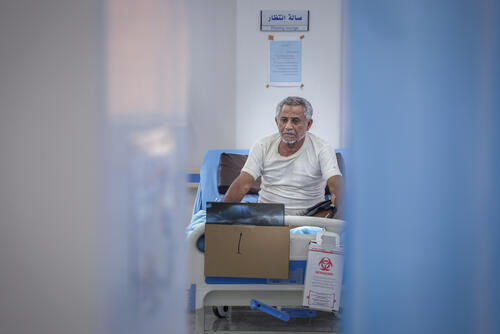
This means ensuring that rich countries with spare doses set out large and predictable donation schedules of vaccines that are not close to their expiry date; investing in vaccination infrastructure by constructing permanent vaccine centres and funding the training and salaries of staff; funding the vast expansion of testing so that people know when they are sick; ensuring that the new antiviral treatments currently coming to market are widely available at affordable prices; and funding the wide availability of oxygen therapies – and pay the salaries of medical staff to administer them – for those people who develop severe forms of the virus.
The daunting challenge of putting these packages in place – a challenge that we are wrestling with – is exactly why a global vaccination effort that aims at a uniform level of vaccine coverage would involve much wasted effort and resources. Everyone who wants a vaccine should have access to one – but there is a huge difference between ensuring vaccine availability in all countries and conducting mass campaigns in all of them. Embarking on too many of the latter risks us misallocating time and resources in countries relatively untouched by the pandemic, and thereby not using them where they are most needed in the fight against COVID-19 and other pressing health issues.
We need to focus on getting vaccines to people most at risk of becoming severely sick or dying in the places most affected by the pandemic, rather than pursuing unattainable ideas of global eradication.Dr Isabelle Defourny
The development of the vaccines that we can use against COVID-19 has been one of the fastest in medical history, but we need to be clear about what we can achieve with them: they are excellent at protecting against serious illness and death, but far less good at stopping transmission. We will not eradicate this disease with the vaccines we currently have. That is why we need to focus on getting vaccines to people most at risk of becoming severely sick or dying in the places most affected by the pandemic, rather than pursuing unattainable ideas of global eradication.
To save the most lives, what we need is not an empty slogan that promises an unreachable goal but a series of smart and locally adapted measures. Only like this will we address the uneven progression of the pandemic across the world, the myriad of different outbreaks experienced by different people in different locations, and the inequality that continues to hamstring poorer countries’ abilities to save the lives of their people.



